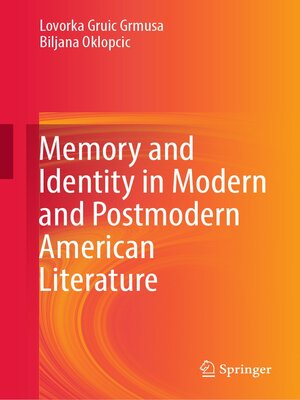
Sign up to save your library
With an OverDrive account, you can save your favorite libraries for at-a-glance information about availability. Find out more about OverDrive accounts.
Find this title in Libby, the library reading app by OverDrive.



Search for a digital library with this title
Title found at these libraries:
| Loading... |
This book discusses how American literary modernism and postmodernism interconnect memory and identity and if, and how, the intertwining of memory and identity has been related to the dominant socio-cultural trends in the United States or the specific historical contexts in the world. The book's opening chapter is the interrogation of the narrator's memories of Jay Gatsby and his life in F. Scott Fitzgerald's The Great Gatsby. The second chapter shows how in William Faulkner's Light in August memory impacts the search for identities in the storylines of the characters. The third chapter discusses the correlation between memory, self, and culture in Tennessee Williams's A Streetcar Named Desire. Discussing Robert Coover's Gerald's Party, the fourth chapter reveals that memory and identity are contextualized and that cognitive processes, including memory, are grounded in the body's interaction with the environment, featuring dehumanized characters, whose identities appear as role-plays. The subsequent chapter is the analysis of how Jonathan Safran Foer's Everything Is Illuminated deals with the heritage of Holocaust memories and postmemories. The last chapter focuses on Thomas Pynchon's Against the Day, the reconstructive nature of memory, and the politics and production of identity in Southeastern Europe.






